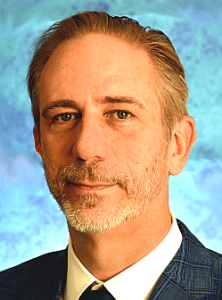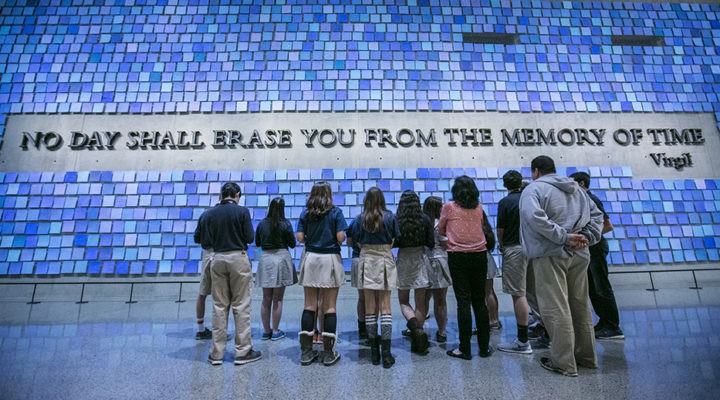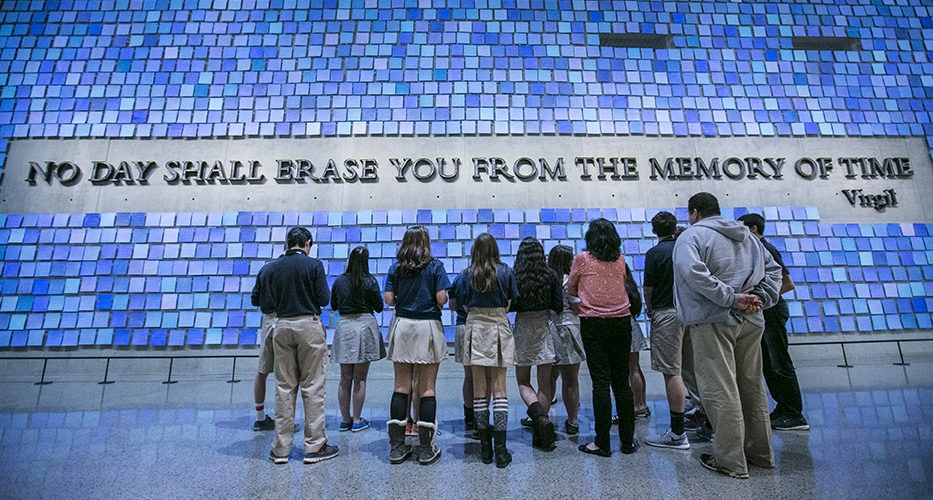Nineteen years ago tomorrow, terrorists directed by Osama bin Laden successfully orchestrated an unforgettable attack that defined the next decade of American life. Hijacking four commercial jets, terrorists flew two into the World Trade Center towers and one into the Pentagon. The fourth plane ended up diving into the ground in rural Pennsylvania after passengers bravely rushed the cockpit. That plane was heading either to the White House or the Capitol.
All told, nearly 3,000 human beings were murdered that day. The 9/11 attacks utterly horrified not only Americans but a watching world.

David Gushee
The attacks also transformed American foreign policy. For at least 15 years, U.S. foreign policy focused on preventing further terror attacks and on avenging 9/11. The United States attacked Afghanistan on Oct. 7, 2001, to overthrow its terrorist-supporting government. The hunt for Osama bin Laden himself continued until he was found and killed by U.S. special forces in Pakistan in May 2011. Far more controversially, the Bush administration erroneously linked Iraq to 9/11 and attacked that country in March 2003, overthrowing its ruthless dictator Saddam Hussein, who eventually was executed by Iraqis in December 2006.
Meanwhile, for at least five years, the CIA developed a secret torture program that was supposed to be targeted at interrogating “high-value detainees” but eventually spread beyond the CIA and down the ladder of those detained. This campaign remains a stain on American honor and one that our citizenry has barely addressed.
Donald Trump was elected president in 2016 in part because he reflected American war-weariness. Far from being quick in-and-out victories, our post-9/11 forays were, as Colin Powell warned, situations of “if you break it, you own it.” We had broken both Iraq and Afghanistan. Fifteen years after 9/11, our troops were still in both countries — 6,800 in Iraq, 8,400 in Afghanistan, at the time of the election. Trump spoke of ending “stupid, endless Mideast wars.”
“Progressive, generally anti-war Christians could and sometimes did get behind Trump’s goal of winding up U.S. military involvement in both countries.”
Progressive, generally anti-war Christians could and sometimes did get behind Trump’s goal of winding up U.S. military involvement in both countries. It had been a long time since 9/11, and it could easily be argued that it was time to bring the troops home.
This effort is far from completed. Indeed, as of today we still have 8,600 soldiers in Afghanistan with a peace deal promising a phased withdrawal. We have 5,200 troops in Iraq with more talk of phased withdrawals. It does not seem at all easy to extricate the U.S. from these countries, and there are reasonable fears that withdrawal will do more harm than good — allowing Islamic State free rein in Iraq, allowing the Taliban to do more Taliban-type stuff in Afghanistan.
Looking further afield, the Trump presidency has upended the alliances and global structures that have dominated the world since 1945. The relationship of the United States government to NATO and our European democratic allies has weakened dramatically. This president has seemed far more sympathetic to Vladimir Putin and Russia than to the alliance that was built to contain the former Soviet Union. Credible reports suggest that if reelected Trump will try to withdraw the United States from NATO. The U.S. also has been gradually withdrawing from parts of the United Nations, including UNESCO, the Human Rights Council, and the World Health Organization. This extreme isolationism is a reversal of the stance of the U.S. for the last 75 years.
“We still have good reason to wonder about Donald Trump’s financial entanglements with, or dependence upon, Putin and his oligarchs.”
We still have good reason to wonder about Donald Trump’s financial entanglements with, or dependence upon, Putin and his oligarchs. His supine posture in relation to Putin is very difficult to explain in pure policy terms. The most recent of countless examples is his unwillingness to accept Germany’s finding that Russian opposition leader Alexei Navalny was poisoned, almost certainly by the Russian government. The fact that Trump simply will not release any portion of his taxes voluntarily only deepens the suspicion that he is in hock to Putin and his cronies. Someday the truth will come out.
But it also seems true that Trump is attracted to and aligning intentionally with Eastern European expressions of illiberal “Christian” democracy/autocracy far more than with secular western European constitutional democracies. In this he has substantial conservative Christian support. The public culture of contemporary Russia, Poland and Hungry, all have become increasingly illiberal, weakened/sham democracies, with constant attacks on the free press, diminished human rights, and leaders whipping up popular support by playing the conservative Christian values card. (Turkey is yet another example, this time of an illiberal Muslim democracy.) One way to look at the stakes of this election is to ask whether we want to look more like Angela Merkel’s Germany or Victor Orban’s Hungary four years from now.
If Donald Trump is indeed turned out of office in November, U.S. foreign policy will, like everything else, need a total reboot. I am grateful that this president has almost entirely avoided ordering U.S. troops into action. But at this point, almost nothing about the U.S. role in the world is clear: who our allies are, what our military is for, what values we want to advance, and what our national interest is understood to be. U.S. foreign policy is in complete disarray.
 David P. Gushee is Distinguished University Professor of Christian Ethics and Director of the Center for Theology and Public Life at Mercer University. He is the past-president of both the American Academy of Religion and Society of Christian Ethics. He is an author or editor of 25 books, including Righteous Gentiles of the Holocaust, Kingdom Ethics, The Sacredness of Human Life, and Changing Our Mind. Gushee’s newest release, After Evangelicalism, is now available. He earned the Ph.D. from Union Seminary. David and his wife, Jeanie, live in Atlanta.
David P. Gushee is Distinguished University Professor of Christian Ethics and Director of the Center for Theology and Public Life at Mercer University. He is the past-president of both the American Academy of Religion and Society of Christian Ethics. He is an author or editor of 25 books, including Righteous Gentiles of the Holocaust, Kingdom Ethics, The Sacredness of Human Life, and Changing Our Mind. Gushee’s newest release, After Evangelicalism, is now available. He earned the Ph.D. from Union Seminary. David and his wife, Jeanie, live in Atlanta.


